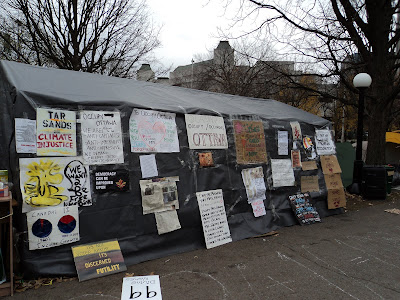We built a Church my second year in Malawi. I was twenty-one years old, Catholic, not a missionary. But my volunteer teaching contract had already exposed me to more pain, more joy, and more eye-opening, soul-expanding experience than I had bargained for. With no television, computer, telephone, video games or anything else to tempt and distract me away from real encounters with poverty, friendship, celebration and, well, God, I needed worship.
The nearest Catholic Church was a four kilometer walk across maize fields and woods. Services were in Chichewa, the local language, but my visits caused such a stir that I dreaded them. It’s not that people weren’t kind and welcoming – they were, in more ways than I could handle – to such an extent that I felt put on display and found it hard to settle into the kind of contemplative meditation that I treasure in the Catholic Mass. I was the only non-Malawian present, a clear outsider, and people fell over themselves to make sure I was comfortable, obliging me to sit on a scavenged chair in the center of the ramshackle building, checking on my well-being, smiling and watching me for the entire mass. Protests went unheard. Throughout the service, people craned around, children stared and pointed, and I felt I had ruined the celebration for everyone.
Had I been older, I might have stayed with that Church and rode out the novelty until people accepted that I was just another parishioner. But I was already doing that at my school, and I craved a place to worship where I wouldn’t be such an outsider.
My roommate, also a Christian but not Catholic, suggested we try a new Church she’d heard about in the capital city Lilongwe. We had motorbikes so the 25 km ride would be manageable. The congregation was meeting in a rented room, and she had heard that it included Malawians and expatriates. She assured me that, although it was nominally Baptist, there were attendees from all different Christian backgrounds.
We rode in with some trepidation on our first Sunday, dust flying behind us, signaling our need for prayer and community. Sure enough the congregation was welcoming and diverse, and still majority Malawian. I had never attended a Baptist service before, but enjoyed the music, prayer and sense of common reaching for God. The congregation had raised enough money for a Church building, and ground was just being broken.
Over the course of the next few months, we continued to worship, plan and build. I contributed little I admit, having no expertise in building, and no knowledge of the needs of a Church. I helped clear debris, and assisted with planting when the time came. Funding was provided by generous donors from the States. But all ideas were welcomed, including mine. I would still attend the Catholic Church from time to time – the mass had meaning for me, and I missed it. But I considered the Baptist Church my home.
The Church took shape rapidly, but what truly left an imprint on me, was the coming together of all these people from different nations and faiths, with a common desire for worship and community. Many of us were from different denominations, and this enterprise required understanding, listening, patience and tolerance. It worked.
I didn’t agree with all the theologies I heard. No doubt many people disagreed with me too. But we didn’t stop conversing.
As we approach Pentecost, I’m reminded of those days of sharing. After that experience, I found myself seeking out other denominations, and taking the time to listen and learn. There are hidden truths in each of our churches, clarity of vision, a commonality of purpose that we need to remember.
On the day of Pentecost, when the Holy Spirit descended on the apostles and Mary, they burst forth in conversation, in desire for community, for building the kingdom of God beyond denominations, beyond languages, beyond barriers of all kinds. The Holy Spirit still calls us to this, to build a Church for all, embracing difference, invoking Christ.































